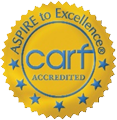How Therapy Helps In Addiction Recovery
For many who are seeking treatment for drug or alcohol addiction, therapy is an essential resource in recovery. This is especially true for those who are struggling with co-occurring disorders. There are a wide variety of therapeutic techniques that can completely change an individual’s experience, and each method has its own advantages.
Three kinds of therapy we employ at Darrin’s Place are individual, group, and family therapy sessions.
Individual Therapy
Every individual is unique, and so they face unique circumstances and challenges in recovery from drug or alcohol abuse. Having an opportunity to experience one-on-one therapy is important to help focus on those personal elements of recovery. That is why we work hard to make sure that each of our clients has access to individual therapy.
Individual therapy offers a level of confidentiality while allowing the client to have more direct attention on their development. This kind of care gives therapists a more thorough understanding of the specific issues each individual faces and creates the opportunity for a customized approach to the recovery process.
Individual therapy allows for the development of communication skills for those who have trouble opening up about their personal life, and the pace of the therapy can be tailored to the needs of the client. Overall, it is a more intimate and comprehensive approach to therapy than in a group.
Group Therapy
Group therapy is another approach that can also be extremely valuable for addiction recovery. This is when multiple clients are treated at the same time by at least one therapist. Some groups have more than one therapist, and group sizes can vary depending on the style of therapy being employed in the session.
These kinds of sessions are powerful because they help to nurture a sense of community and connection. Having group therapy can help reassure an individual that they are not on their own. It helps people to see that there are other people struggling in the same way they are and creates a bond between individuals in recovery. Not only does the individual get to feel supported, but they have an opportunity in group therapy to support others. This support creates a safety net, allowing people to feel safe to share their feelings.
Group therapy gives people a chance to develop their communication skills while learning how to accept criticism and express themselves in a healthy way. In addition, group therapy allows individuals to model the successful strategies and behaviors of their peers. By discussing similar issues with people with similar experiences, a client can emulate effective solutions.
Family Therapy
Addiction is a family disease. The damage of drug and alcohol abuse is never confined to one person, and often the people closest to the person who is suffering are hurt the most. Family therapy is another form of therapy, often done in a group setting, where members of the family get the chance to work together with a professional therapist to address issues that have affected the client and their loved ones. Sometimes this is for parents or guardians with addicted children. Family therapy can also be for children with addicted parents. With couples, sometimes one or even both individuals are struggling with substance abuse. Family therapy is meant to help people work together with the people they love most to overcome obstacles.
Family therapy sessions not only help to reconnect families with their loved ones, they also help families to understand what their loved ones are going through. Most family members do not know about the science of addiction, or how long-term drug and alcohol abuse can affect the mind and the body. Family therapy helps loved ones to grow and learn together through the recovery process. In fact, studies show family therapy results in:
- Lower relapse rates
- Increased happiness in the family
- Better functioning in children with addicted parents
There are a number of ways to approach family therapy with addiction treatment. Some techniques and exercises incorporate cognitive behavioral therapy, interpersonal therapy, and other kinds of individual therapies.

Our General Health Services
- Medical
- Dental
- Medication Management
- Psychiatric & Behavioral Health
- Evening and Weekend Programming
- Telehealth
- High Complexity Toxicology Labs
- Family Education
- COVID-19 Testing


